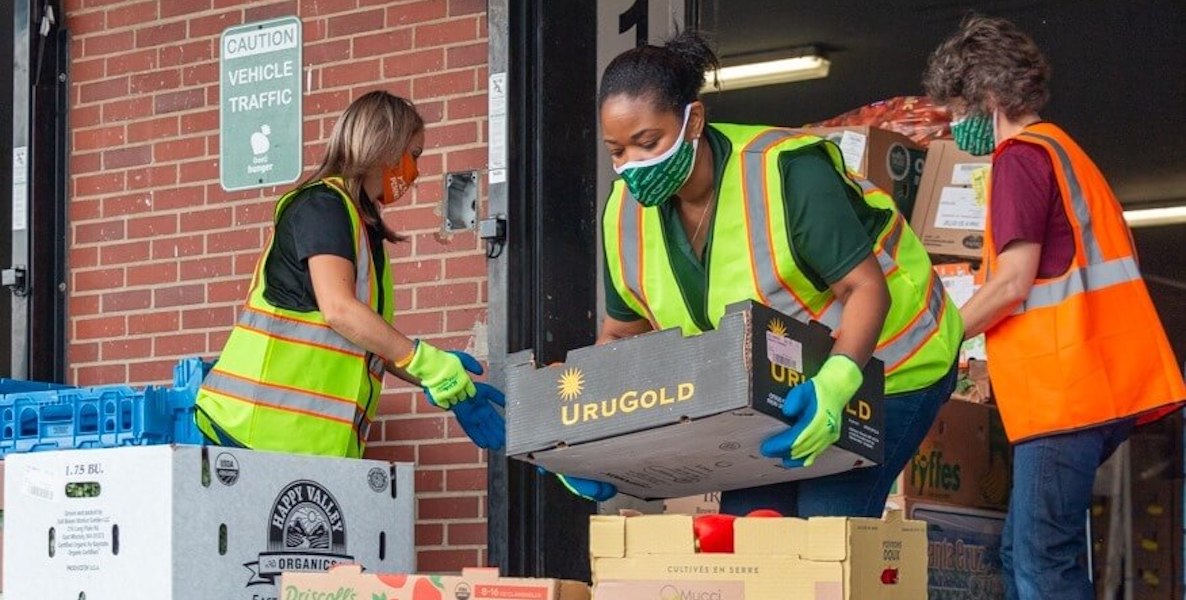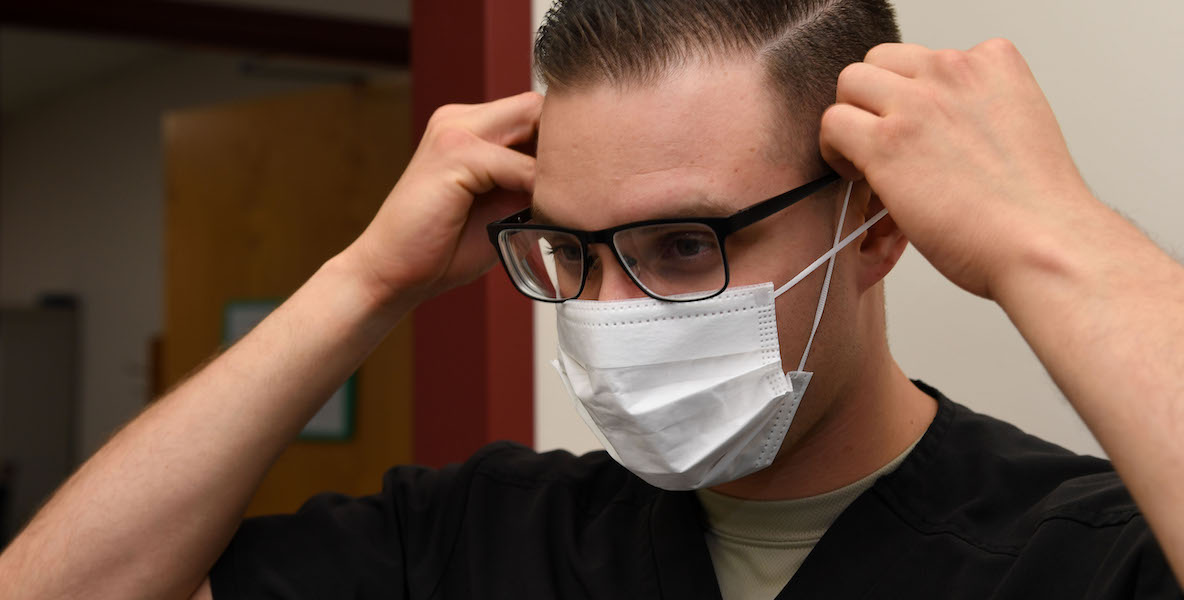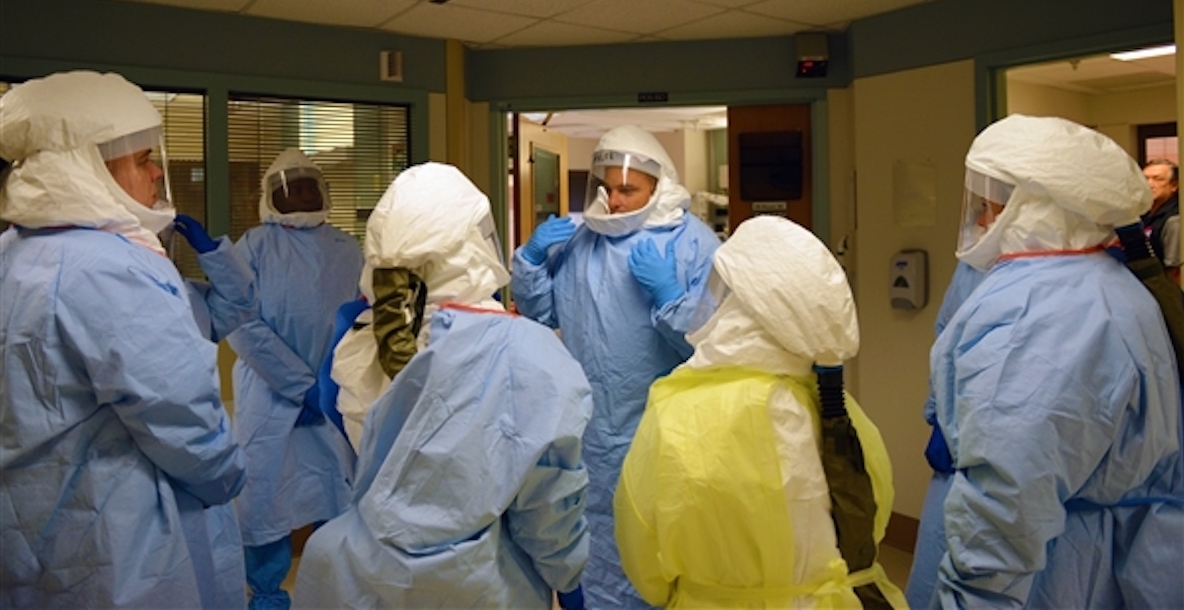Several weeks ago Evan Malone, the president of NextFab, was busy planning the April 25 grand opening of a new maker space in South Kensington. Now those plans are like a distant memory, the opening scrapped to make room for a far more pressing concern.
Amid the deadly COVID-19 pandemic, Malone and others are trying to reorganize supply chains to avoid a potential catastrophic lack of equipment in local hospitals.
The new project is known as CoverAid PHL, and it aims to bridge the gap between the needs of frontline medical workers and the untapped capacity of Philadelphia’s factories and volunteer hemmers.
“It won’t be easy. There may be pain, and there will definitely be some stress,” Malone says.
On Wednesday, the city of Philadelphia announced that it is finalizing a partnership deal for production of medical masks, according to Managing Director Brian Abernathy. “The local manufacturing community has been great to work with,” Abernathy said at a press conference, when he offered no further details on the arrangement.
Meanwhile, CoverAid PHL came together in a haste to fill what its founders knew was a gap. Their website which still features incongruous stock imagery and scant information. But the effort is serious, run by a plugged-in team with impressive professional backgrounds.
Donate or make masksDo Something
Brill, who studied statistics and social policy at American University before going into business, has two favorite sayings, according to herbio from DeSimone Group, her investment company: “Eat the elephant one bite at a time” and “Run with scissors.” Both seem instructive given the scale of the immediate challenge and the danger of acting too slowly.
Malone, who has a PhD in mechanical engineering from Cornell University, helped bring the modern maker movement to Philadelphia through NextFab, which provides light manufacturing training, services and technology to individuals and startups through a membership model. Amid the health crisis, workers at his NextFab space in South Philadelphia are poised to work on building diagnostic test kit components for a local company—he won’t specify who—and may also pitch in on building other medical equipment.
In order to build a new supply chain for local hospitals, Brill and her team are taking a systematic approach while also trying to work as quickly as possible. The first goal is to produce protective masks, and the first task towards that goal is landing on agreed-upon specifications for how those masks should be constructed and with what materials.
“It won’t be easy. There may be pain, and there will definitely be some stress,” Malone says.
Once Brill finds a design that hospital brass would want to procure, CoverAid PHL plans to post a downloadable spec for it on the website so that volunteers in the community could start work on their own.
“It’s a process of trying to do something simple, and it scales up and down and bloats, and comes back down so we can just get it done,” Brill says.
The composition of the fabrics used in protective masks is an important element of the specifications, and it is difficult to be certain about the specific components of a textile unless purchasing from a professional jobber or a mill, according to Brill. That is one reason why there will be two tiers of products available for hospitals: the type produced by professional manufacturers and the kind made by volunteers on home sewing machines.
Writing in the Washington Post, Philadelphia pediatrician Dorothy Novick said Healthcare provider's mask-making tutorialVideo
“Practicing universal precautions would protect health-care providers, as well as our patients, from COVID-19. But doing this requires a steady supply of personal protective equipment (PPE),” Novick wrote. “We need manufacturers to step up production of face masks, N95 masks, gowns and gloves.”
Health Commissioner Dr. Thomas Farley said there is a shortage of personal protective equipment for medical workers, and the city has “instituted recommendations for steps that hospitals can take to conserve the ones that they have” while seeking to obtain more.
A looming dearth of masks and other protective gear is one of several areas in which the United States is relatively ill-equipped to confront the unprecedented needs of such a massive disease outbreak.
At the federal level, Rear Admiral John Polowczyk is heading up supply chain considerations at the Federal Emergency Management Agency, and on Monday he described some ways his organization could help put equipment in the hands of those who need it.
“There are many vendors, many distributors, all on a separate system,” Polowczyk said during a White House press conference, according to the official transcript. “Nobody has one sight picture for that supply chain. We’ve brought our industry partners in. We’re weaving that together to make better allocation decisions and understand where it is and where it needs to go.”
Personal protective equipment and ventilators are the top focus right now, and Polowczyk said the feds have “tools” that can help manufacturers shift production to help with the pandemic response.
ButJuliette Kayyem, a former homeland security official, and others have faulted President Trump for failing to use one of his biggest tools—the Defense Production Act —to compel U.S. factories to pivot towards creating needed medical supplies. On Tuesday, Politico reported that Trump wouldfinally invoke the federal law to obtain medical equipment.
During the pandemicMORE WAYS TO HELP
“We’re trying to protect the workers and then hopefully avoid the worst, which would be the health-care system becoming so overwhelmed we actually just can’t treat people anymore,” says Brill, whose sister is a physician.
Much of CoverAid PHL’s work right now is being coordinated on Slack. As of Monday, CoverAid PHL’s Slack channel numbered around 40 people, with representatives from hospitals, city government, and private industry, according to Malone.
The loose network is all volunteer-run, and Brill said she has no financial stake in any aspect of the supply chain mobilization.
Venafro is working on procuring material that could be used by local factories for professional-grade mask manufacturing, according to Brill. The group is also trying to coordinate enough local buyers to make a big materials purchase from overseas suppliers, according to Malone. Tony Sacksteder, a consultant, is managing the product development process. The network has taskedElissa Bloom, executive director of the Philadelphia Fashion Incubator, with mustering the volunteers to produce fabric masks in their homes.
Others have already gotten to work crafting masks even without guidelines or specific requests from local hospitals. A West Poplar woman used fun fabrics and incorporatedanti-racist messages; a Brookhaven dental hygienist who runs a dental staffing agency began collectingdonated masks from temporarily shuttered dental offices; a medical student in rotation at Cooper University Hospital has a Facebook group for volunteer mask-makers with1,500 members. And Alana Ufberg, an 11-year-old Wynnewood girl, has launched her own at-home mask-making project for oncologists at Penn.
Concerns about an equipment shortage and the nascent volunteer production effort are far from unique to Philadelphia. The country isdotted with home-spun medical mask suppliers and hospitals that have taken new measures to preserve their dwindling supplies.
“We’re trying to protect the workers and then hopefully avoid the worst, which would be the health care system becomes so overwhelmed we actually just can’t treat people anymore,” says Brill, whose sister is a physician.
Brill is hoping to streamline those efforts in Philadelphia, and potentially create a template that could be replicated in other areas. “People were doing the same thing in parts and pieces in other places,” Brill says. “We’re trying to funnel it.”
With the website still under development and no agreement just yet on the design specifications, CoverAid PHL hasn’t yet achieved its goals, but if it does it may meet a need identified by others in the Philadelphia business community.
Jennifer Rodríguez, president and CEO of the Greater Philadelphia Hispanic Chamber of Commerce, said that manufacturers want to shift production, but that will take time and coordination.
“This is reaching into a network that may not be your regular network of people that you work with,” Rodríguez says. “The reality is that repositioning a whole assembly line to do something else is not nearly as easy as they make it look sometimes.”
The Hispanic chamber is working on creating a single point of contact webpage for Latino businesses, and Rodríguez said it would be useful for someone to survey Philadelphia’s business community to determine the excess manufacturing capacity that could be tapped.
Rodríguez has been in touch with Jessie Garcia, the founder and CEO of Tozuda, a local company that makes head-impact sensors.
Garcia has 3-D printers, knows how to use them, and thinks that those machines could be useful in increasing the supply of ventilators, which can keep people alive when they are experiencing the worst symptoms of COVID-19.
While she is interested in helping, Garcia needs a “connection” between her capabilities and the medical community’s needs. She also said she is not worried about compensation and doesn’t want to make money for her efforts.
“I’ll speak for myself. I’m interested in doing this out of just wanting to help,” Garcia says. “During a time of complete lack of control and who knows what’s going to happen, this will make me feel like at least I’m trying, you know? Trying to make a difference and help people who are putting their lives on the line for us.”
Header photo: Air Force medicine





